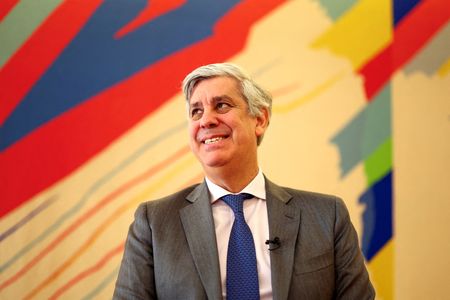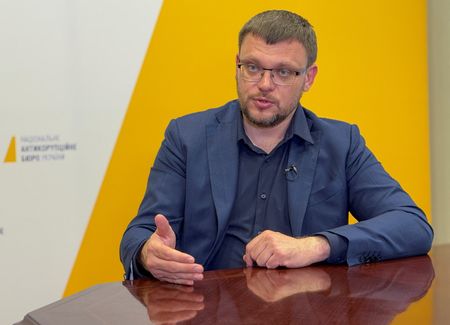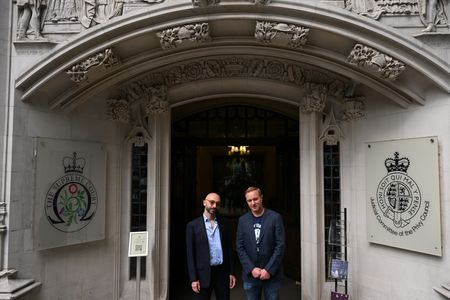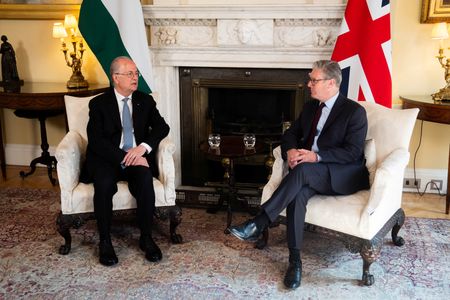By Sergio Goncalves
LISBON (Reuters) -The Portuguese government nominated on Thursday Alvaro Santos Pereira, the chief economist at the Organisation for Economic Cooperation and Development, as the next central bank governor to succeed Mario Centeno after just one term at the helm.
The decision to nominate Santos Pereira, who served as economy minister in a centre-right government in 2011-2013 at the height of a debt crisis and austerity programme dictated by an international bailout, was announced by Cabinet Minister Antonio Leitao Amaro after a weekly cabinet meeting.
The nominee must submit to questioning by a parliamentary committee – which has no power to block the nomination – before the government can officially appoint him. The timing for that is unclear, as parliament is now in summer recess.
It is not uncommon for heads of regulatory bodies in Portugal to remain in office months after their terms expire.
Centeno, who was open to serving a second term, has been the target of frequent criticism from the political right, now in power, for moving from his role as finance minister in a previous Socialist administration to the central bank in 2020, a move detractors said undermined the institution’s independence.
Centeno, who was Eurogroup president in 2018-2020, has been a vocal so-called dove favouring looser monetary policy at the European Central Bank.
As the OECD’s chief economist, Santos Pereira, 53, has been tasked with designing ways for the group of 38 developed countries and their partners to promote long-term economic growth.
“He’s the best choice because he’s independent. He doesn’t come from within the Bank (of Portugal) or from government. He served in government, but that was over a decade ago; he doesn’t belong to any political party … this way, we guarantee the (central bank’s) independence,” Leitao Amaro said.
As minister, he helped design reforms of the labour market and competition laws, but his arguably best-known proposal was to make Portugal’s typical custard tarts an international franchise as a means to boost exports, which has since been taken up by several companies despite initial public ridicule.
Communicative and pragmatic, Santos Pereira is known to dismiss formalities, having told reporters on several occasions during his stint in government that he preferred to be addressed by his first name rather than as “minister”.
A dual citizen of Portugal and Canada, he has a doctorate in economics from Canada’s Simon Fraser University, where he also taught.
(Reporting by Sergio Goncalves and Andrei Khalip, editing by David Latona, William Maclean)








